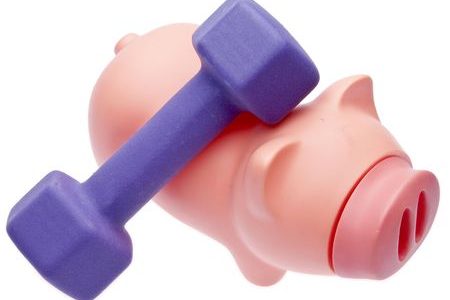Staying fit is important, both physically and financially. Most people know how get healthy: exercise and eat right. But not everyone knows what it means to get financially fit. Financial wellness can mean different things to different people. Some might say it is defined as the quality of a person’s financial wealth. A person’s financial wellness can fluctuate between changing circumstances. For employers, financial wellness is a program designed to improve employees’ financial behavior which has also shown to have positive impact on employee production. For some, financial fitness is simply: freedom.
Get In Tip-Top Financial Shape!
So where do you begin?
Ask yourself these key questions:
- Do you live paycheck-to-paycheck?
- Are surprise expenses paid by a credit card?
- Does the idea of retirement seem like a hopeless fantasy?
If you said yes to all three—you could probably use a financial "diet." It's important to develop an awareness and understanding of your personal circumstance and what steps you can take to improve your financial situation.
First step is to get a copy of your credit report- Your credit reports can provide a snapshot of your overall financial standing and a free consultation reviewing your activity with our certified in house credit counselors. It is also easier than ever to obtain copies of your report without impacting your score due to an inquiry. The FACT ACT gives every consumer the right to a free credit report every year from each of the three major credit bureaus: Equifax, Experian and TransUnion. To get a free report you can visit www.annualcreditreport.com
Budget- Make a budget before you do anything else (and it’ll help you with building that cash cushion, as well). Identify areas where you can cut back spending (stop buying $5 cups of coffee, for instance), and then DO IT. Creating a budget can be tough, but it has to be done. You can use online budgeting and financial tools to help if you’re more comfortable using these services than going it alone.
Automate Your Savings- Before you spend a single cent — put away at least 10 percent of your income into a savings account. If you can, put all bonuses (or any expected income) into this account too. Name it something fun like “Round the world ticket” or “Dream Home” to remind you why you are socking cash away each month.
Save for Emergencies- A good rule of thumb is to have a minimum of six months of salary available in your savings account. While this goal will take time to achieve, it is important to strive for it so you’re prepared for most unexpected emergencies.
Remember that just like an actual physical diet, a financial diet will take time before you see results. You will need to have patience and stay disciplined but in the end: you'll feel better and be in better financial shape.
Read more financial wellness tips here.
Luther Sales knows the importance of financial wellness and credit restoration. As part of our commitment, we report on time payments to the credit bureau. Use our no obligation 3-minute application form to get started on your journey to financial fitness today.





